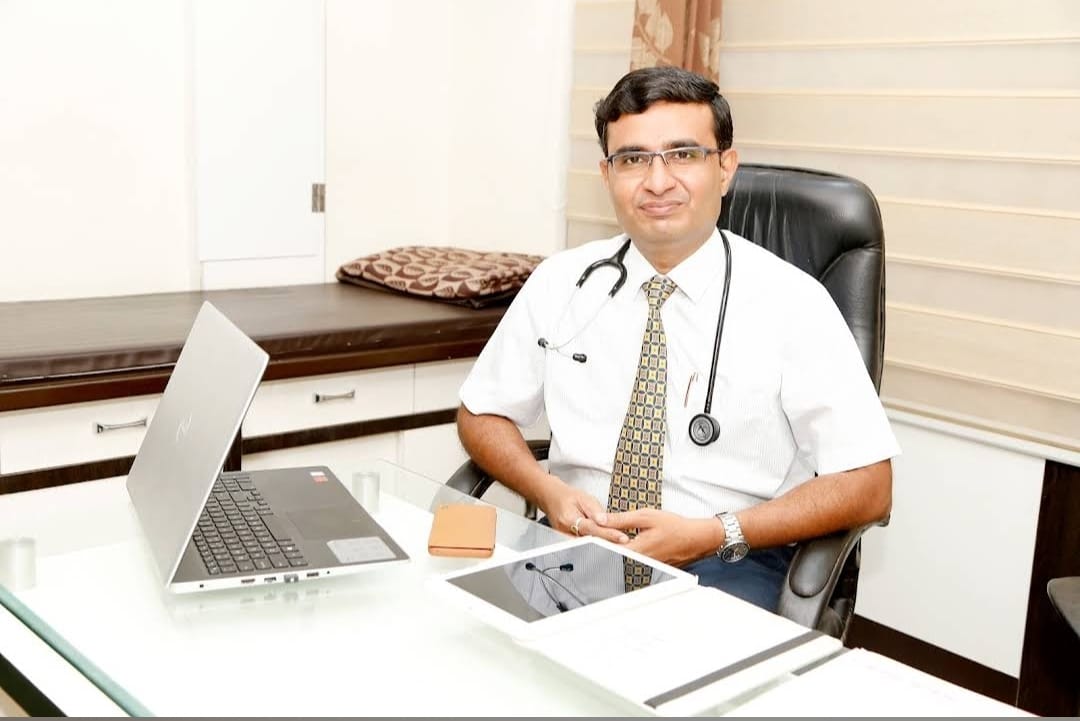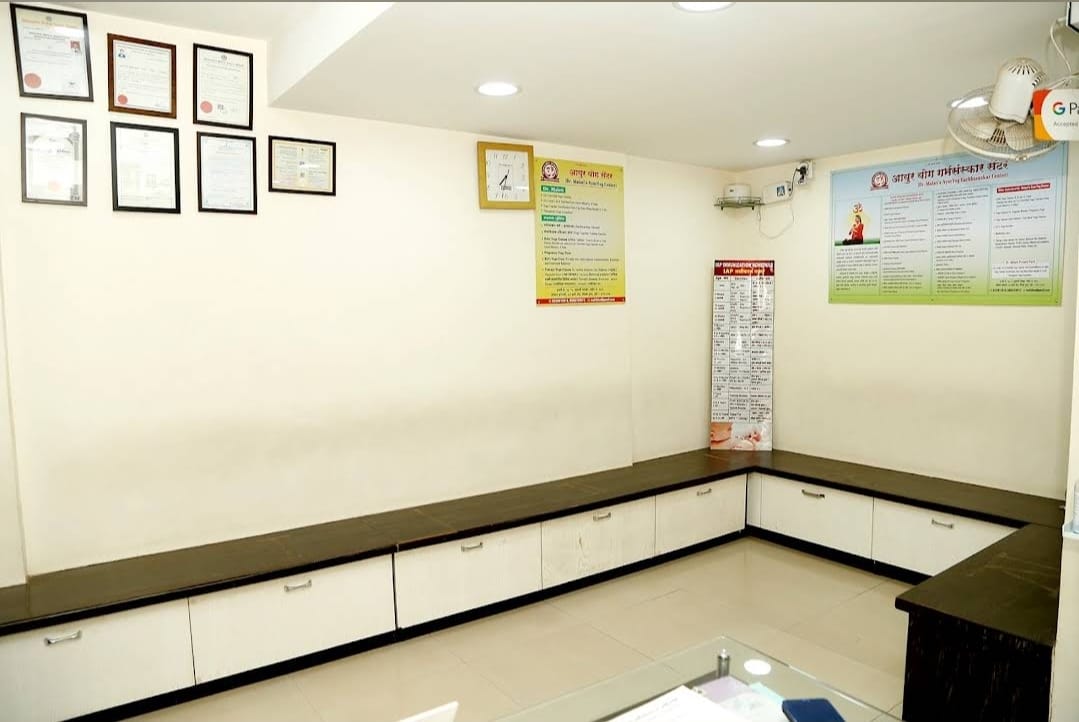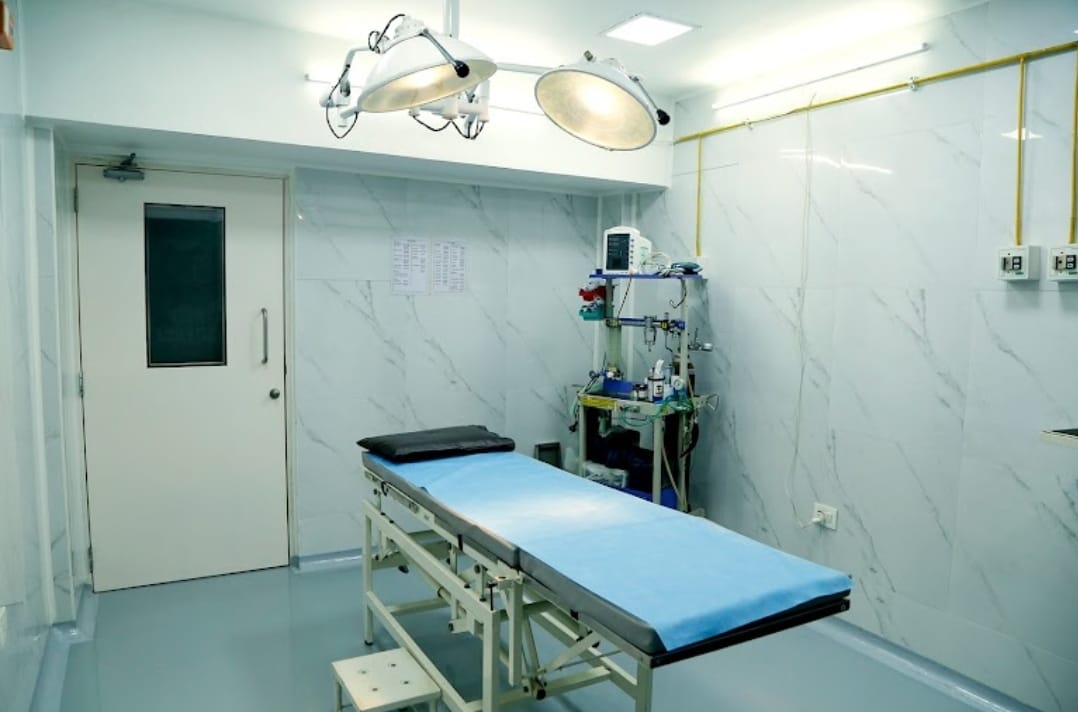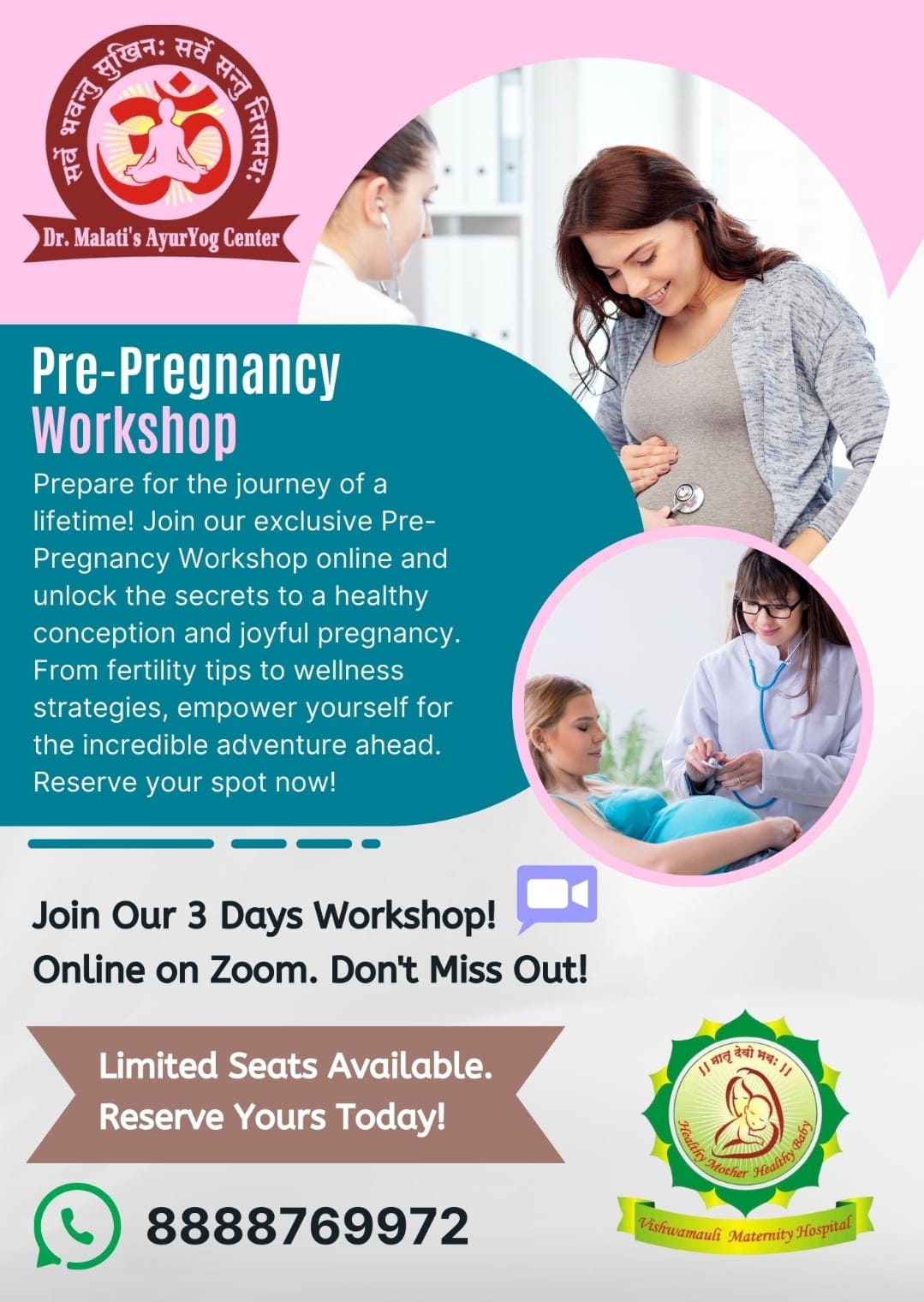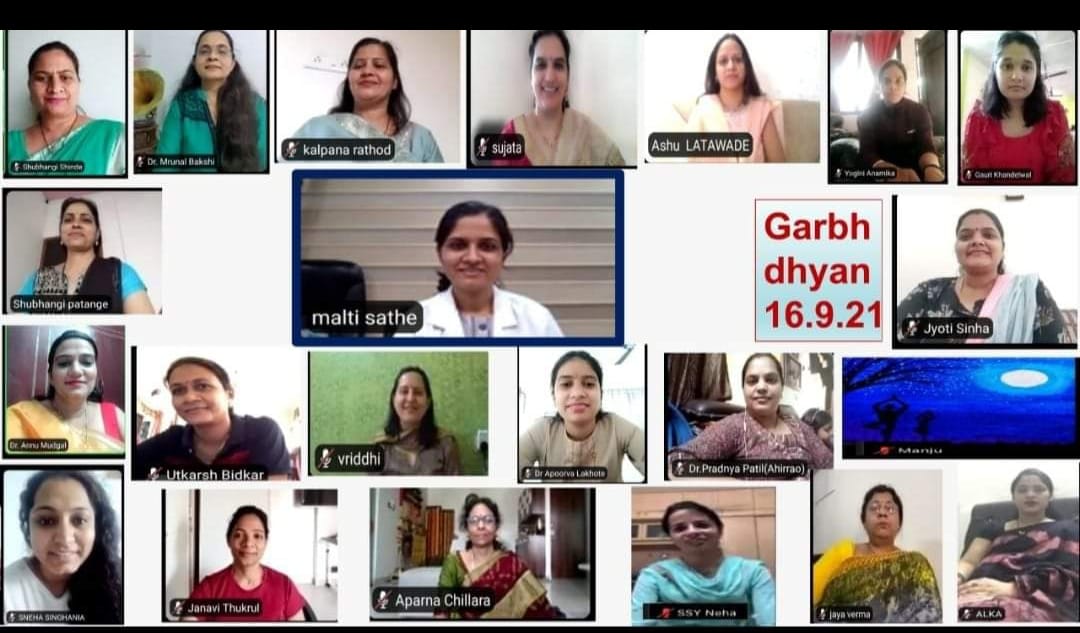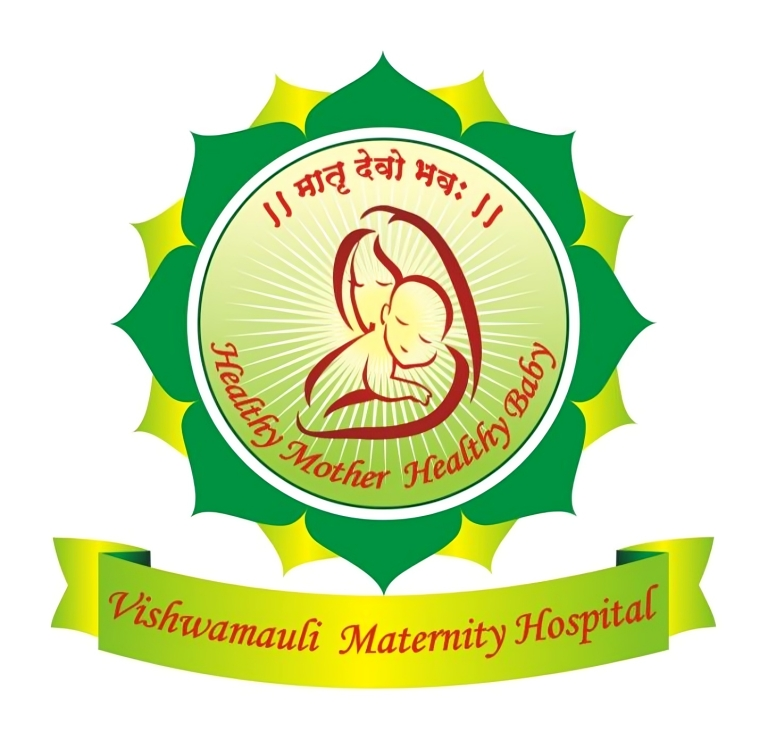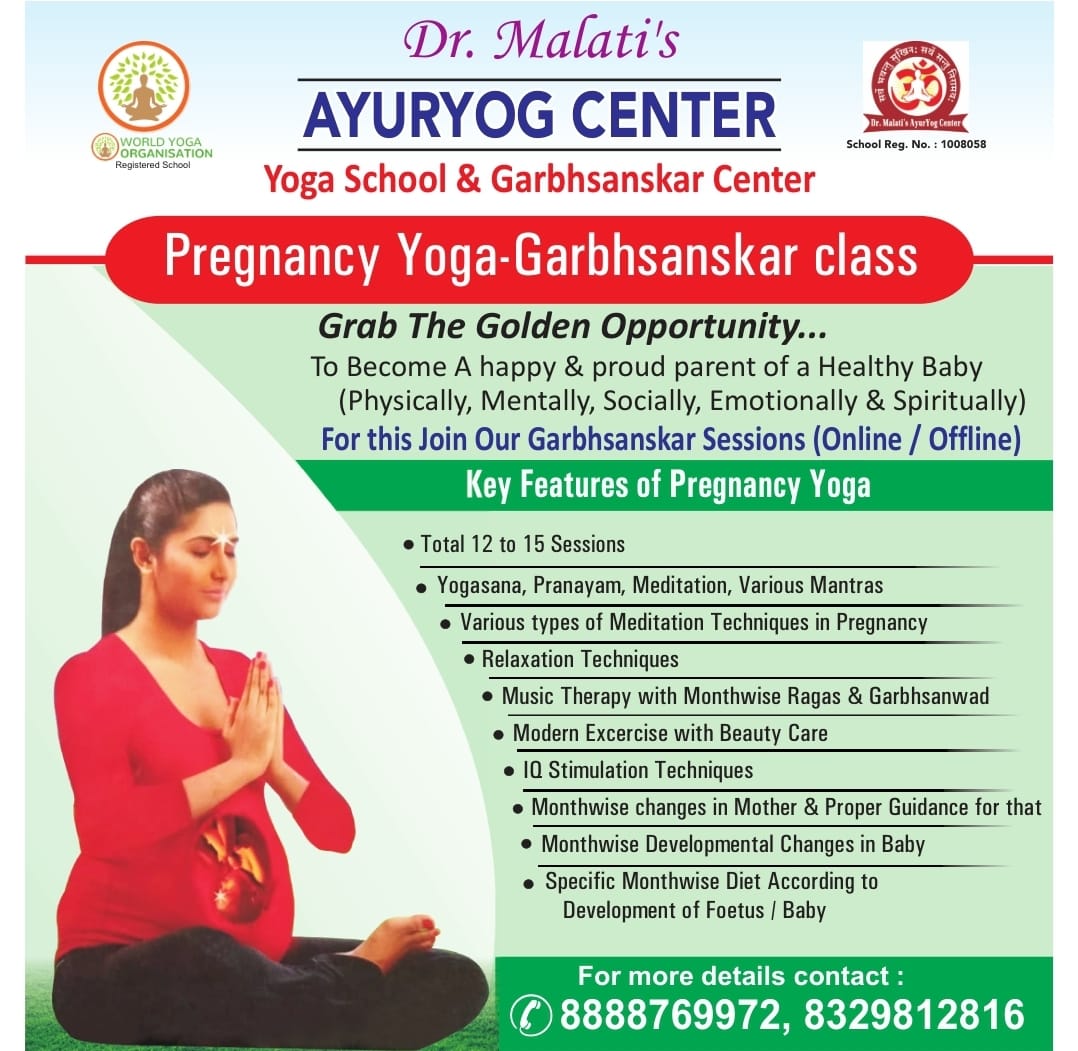About Us
VISHWAMAULI HOSPITAL
AND AYURYOG GARBHASANSKAR CENTRE
HEALTHY MOTHER HEALTHY BABY
Dr. PRITESH PATIL
- MBBS., DGO. (J. J. Hospital Mumbai)
- Obstetrician & Gynaecologist
- Infertility Consultant, IUI Specialist
- स्त्रीरोग व प्रसूतीशास्त्र तज्ञ
Dr. MALATI PATIL
- BAMS. (Pune), PDGCC, C. E. Ed
- Cosmetologist, Family Physician,
- Pregnancy Yoga & Garbhasanskar Consultant
AVAILABLE SERVICES :
- ANC Checkup
- Medical Termination of Pregnancy (MTR गर्भपात)
- IUI (Intra Uterine Insemination)
- Infertility treatment (Both Allopathy & Ayurvedic)
- Follicular study - Sonography
- Sonography of pregnant women
- PCOD/PCOS treatment
- Menstrual disorders
- Family planing operation open & laproscopy both
- Normal delivery / LSCS
- Cu-T Insertion
- General Surgery
- Paediatric Vaccination
- General patient check-up like cough, cold, fever etc.
- Pregnancy yoga & Garbhsanskar classes for pregnant women
- Panchakarma - Vamana, Virechana, Basti, Raktamokshana, Nasya
- Uttarbasti
- Shirodhara
- Abhyanga
- Snehan Steam) Swedan (Relaxation massage
- Ayurvedic treatment mainly for Hair fall, Back Pain, Joint Pain, Arthritis, Infertility, Constipation, Acidity, Pcon, Vericose Vein, Miraine etc.
- Suvarna Prashan
- LIC Authorised Doctor
Products/Services
VISHWAMAULI HOSPITAL AND AYURYOG GARBHASANSKAR CENTRE
Dr. PRITESH PATIL
- MBBS., DGO. (J. J. Hospital Mumbai)
- Obstetrician & Gynaecologist
- Infertility Consultant, IUI Specialist
- स्त्रीरोग व प्रसूतीशास्त्र तज्ञ
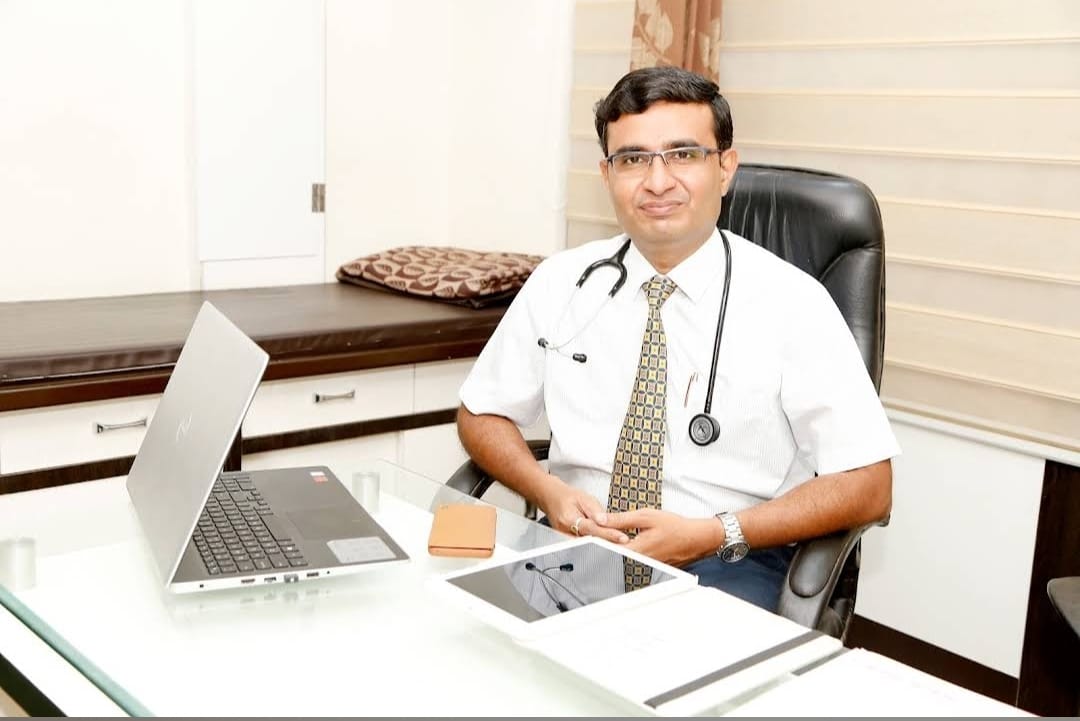
VISHWAMAULI HOSPITAL AND AYURYOG GARBHASANSKAR CENTRE
Dr. MALATI PATIL
- BAMS. (Pune), PDGCC, C. E. Ed
- Cosmetologist, Family Physician,
- Pregnancy Yoga & Garbhasanskar Consultant
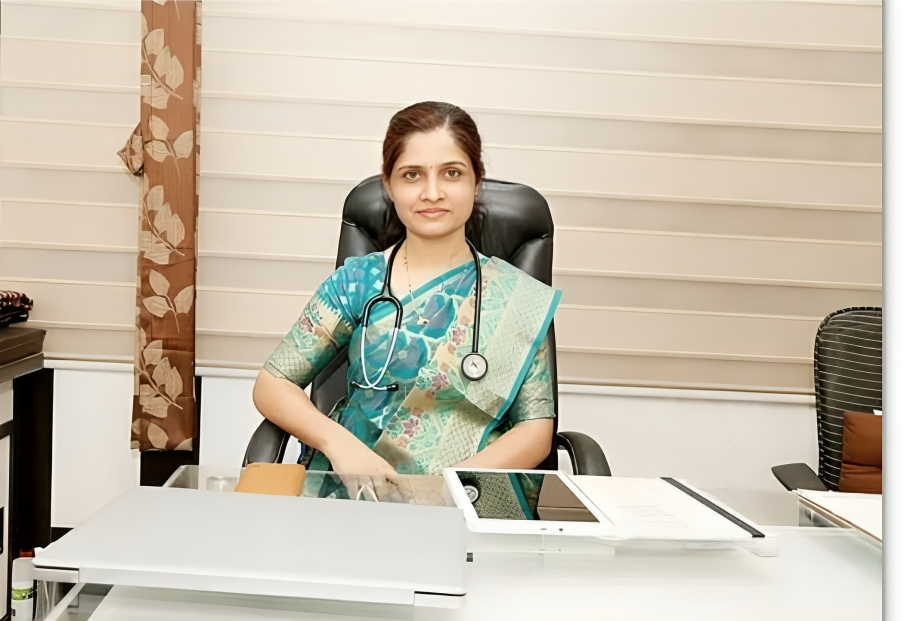
FEMALE INFERTILITY
The inability to conceive is known as infertility. Both men and women play an equal role in achieving pregnancy. Approximately 30% of infertility cases are due to male factors, another 30% are due to female factors, and the remaining 40% result from issues affecting both partners.
Causes of Female Infertility:
- Defects in female reproductive organs
- Polycystic Ovary Syndrome (PCOS)
- Hormonal imbalances
- Pelvic Inflammatory Disease (PID)
- Medical conditions like endometriosis and uterine fibroids
- Advanced maternal age
- Overweight or obesity
- Hypothyroidism
- Smoking and alcohol addiction
- Mental stress
- Malnutrition or physical weakness
- Sexually transmitted infections (STIs)
- Side effects of chemotherapy or radiation therapy
- Excessive use of painkillers or psychiatric medications
- Improper use of contraceptive pills
These factors contribute to infertility in women.

IUI LAB
Intrauterine Insemination (IUI) is a fertility treatment in which specially processed sperm are injected directly into a woman’s uterus during ovulation, increasing the chances of conception. This procedure is commonly recommended for mild male infertility, unexplained infertility, cervical mucus issues, and cases requiring donor sperm. Compared to In Vitro Fertilization (IVF), IUI is a simpler and more cost-effective procedure.
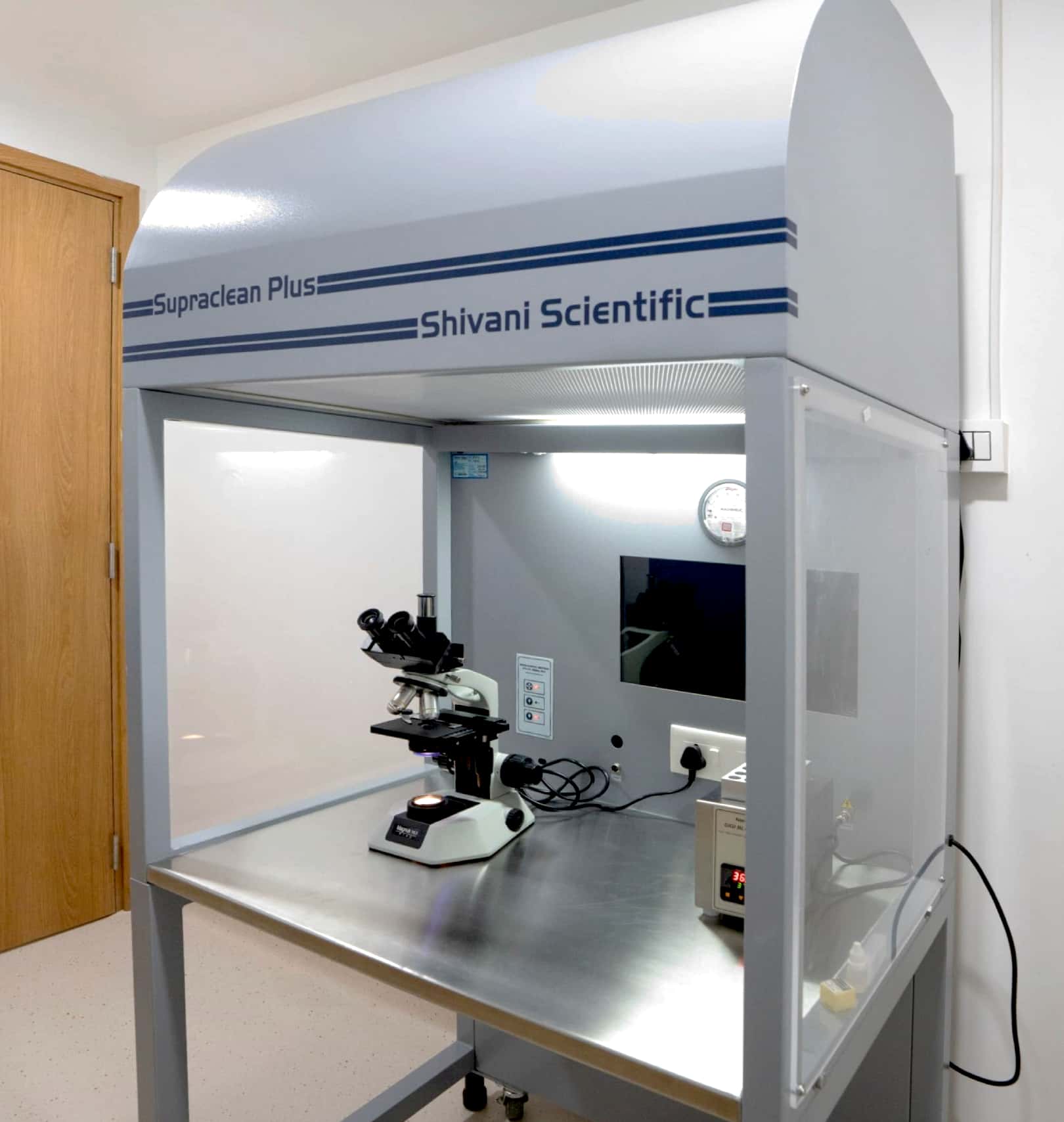
LAPAROSCOPIC & GYNAECOLOGICAL SURGERIES
Laparoscopic gynaecological surgery is a minimally invasive procedure performed using small incisions and a camera to diagnose and treat various gynecological conditions.
The advantages of this technique include less pain, faster recovery, and a lower risk of complications compared to traditional surgeries. As a result, patients can return to their normal lifestyle more quickly and experience overall improved outcomes.
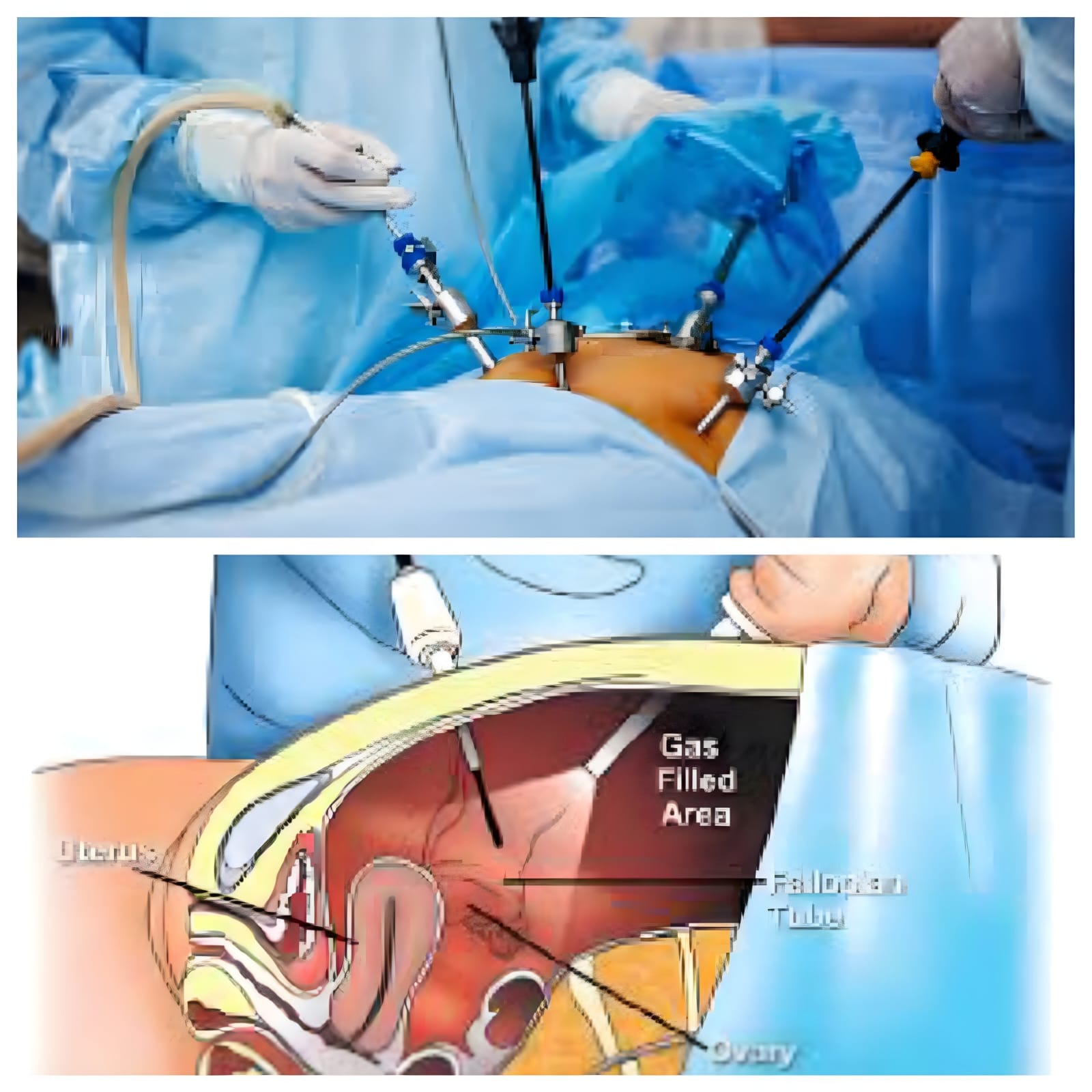
HYSTEROSCOPY : A PROCEDURE FOR UTERINE EXAMINATION
Hysteroscopy is a minimally invasive procedure used to examine the uterus. A flexible, lighted tube (hysteroscope) is inserted through the vagina and cervix to inspect the uterine cavity.
Purpose: It is used to diagnose and treat conditions such as irregular bleeding, uterine fibroids, polyps, adhesions, infertility, and tubal blockage. It also serves as a pre-evaluation for reproductive surgeries.
Benefits:
- Accurately identifies uterine abnormalities.
- Allows treatment of conditions like polyps and fibroids during the procedure itself.
- In some cases, it helps improve fertility.
- No incisions or stitches are required.
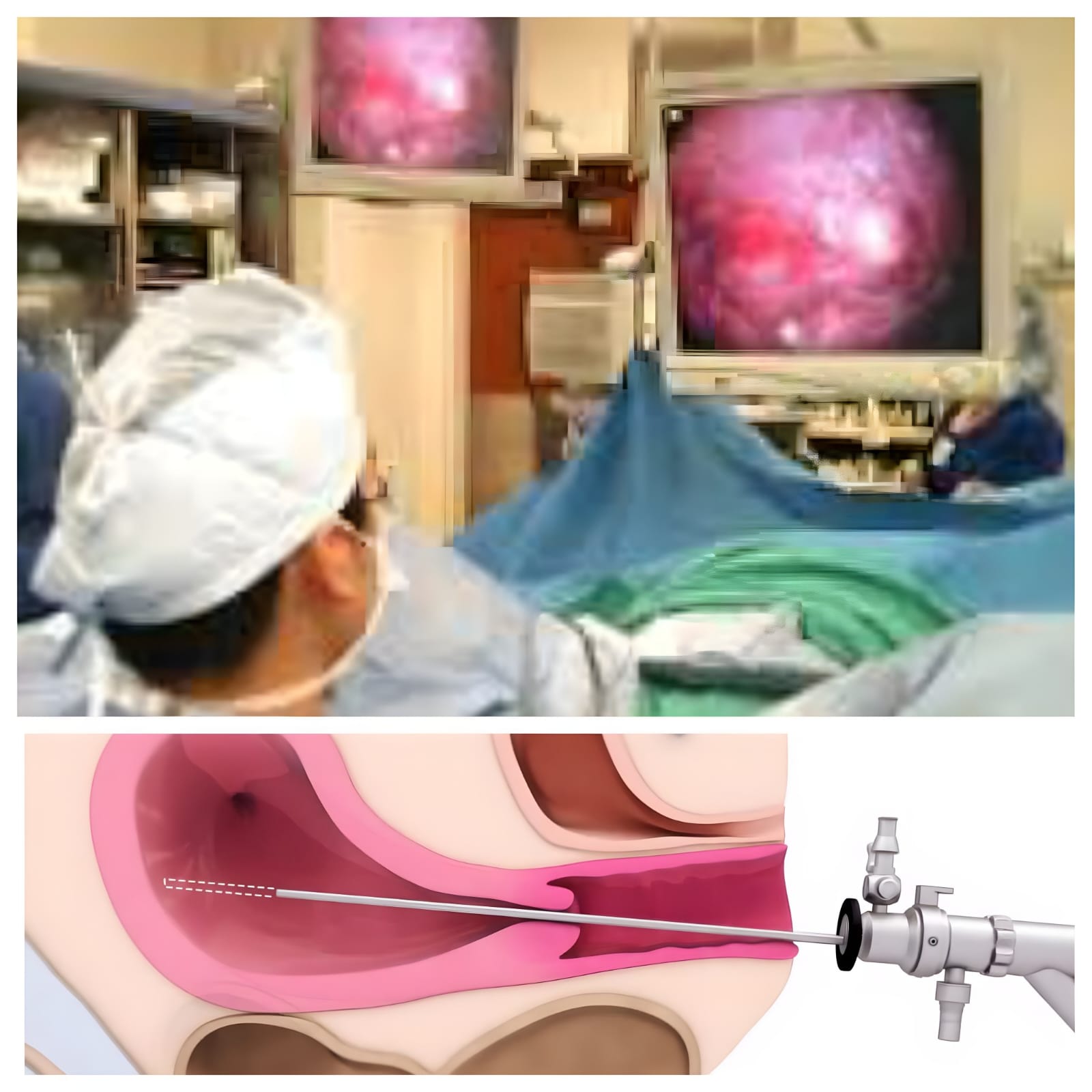
ULTRASOUND (SONOGRAPHY)
During pregnancy, a minimum of four ultrasound scans is necessary. According to current medical knowledge, ultrasound does not have any harmful effects on the fetus. A Color Doppler ultrasound should only be performed if required. Ultrasound provides the following essential information:
First Ultrasound: Within 8 weeks from the last menstrual period (LMP), i.e., within the first 2 months.
- Confirms whether the pregnancy is developing inside the uterus.
- Assesses fetal growth.
- Detects multiple pregnancies.
- Identifies molar pregnancy or non-viable pregnancy.
Second Ultrasound (NT Scan): Between 13 weeks and 6 days (third month)
- Monitors fetal growth.
- Detects signs of Down syndrome.
- Identifies any fetal abnormalities through the NT scan.
Third Ultrasound (Anomaly Scan): Between 18 to 22 weeks (fifth month).
- Evaluates fetal growth.
- Detects fetal abnormalities.
- Assesses the amount of amniotic fluid.
- Determines the position of the placenta.
Fourth Ultrasound: Between 28 to 36 weeks (ninth month).
- Monitors fetal growth.
- Assesses the amount of amniotic fluid.
- Evaluates blood supply to the fetus using Color Doppler ultrasound (if necessary).

PRE-CONCEPTIONAL COUNSELLING
Preconception counseling involves providing guidance and discussions on health, lifestyle, and medical factors for individuals or couples planning to conceive. It aims to increase the chances of a healthy pregnancy by offering essential advice.
Benefits:
- Identifies and manages potential risks.
- Improves fertility.
- Creates a supportive environment to ensure a successful and healthy pregnancy.

ANTENATAL CARE (ANC) CHECKUPS & TREATMENT
ANC checkups involve expert prenatal guidance, including essential medical examinations during pregnancy. These consultations ensure regular monitoring of both the mother’s and the developing baby’s health, allowing for the early detection of potential complications.
ANC includes various diagnostic tests, nutritional counseling, and guidance for a healthy pregnancy, ultimately promoting a safe and comfortable childbirth experience.

DELIVERY (NORMAL & CESAREAN)
Normal delivery is a natural childbirth process that is usually less complicated and allows for faster recovery.
Lower Segment Cesarean Section (LSCS) is a surgical procedure in which an incision is made in the mother’s abdomen to deliver the baby. While normal delivery provides a natural birthing experience, LSCS is performed for medical reasons or in cases of complications to ensure a safe delivery.
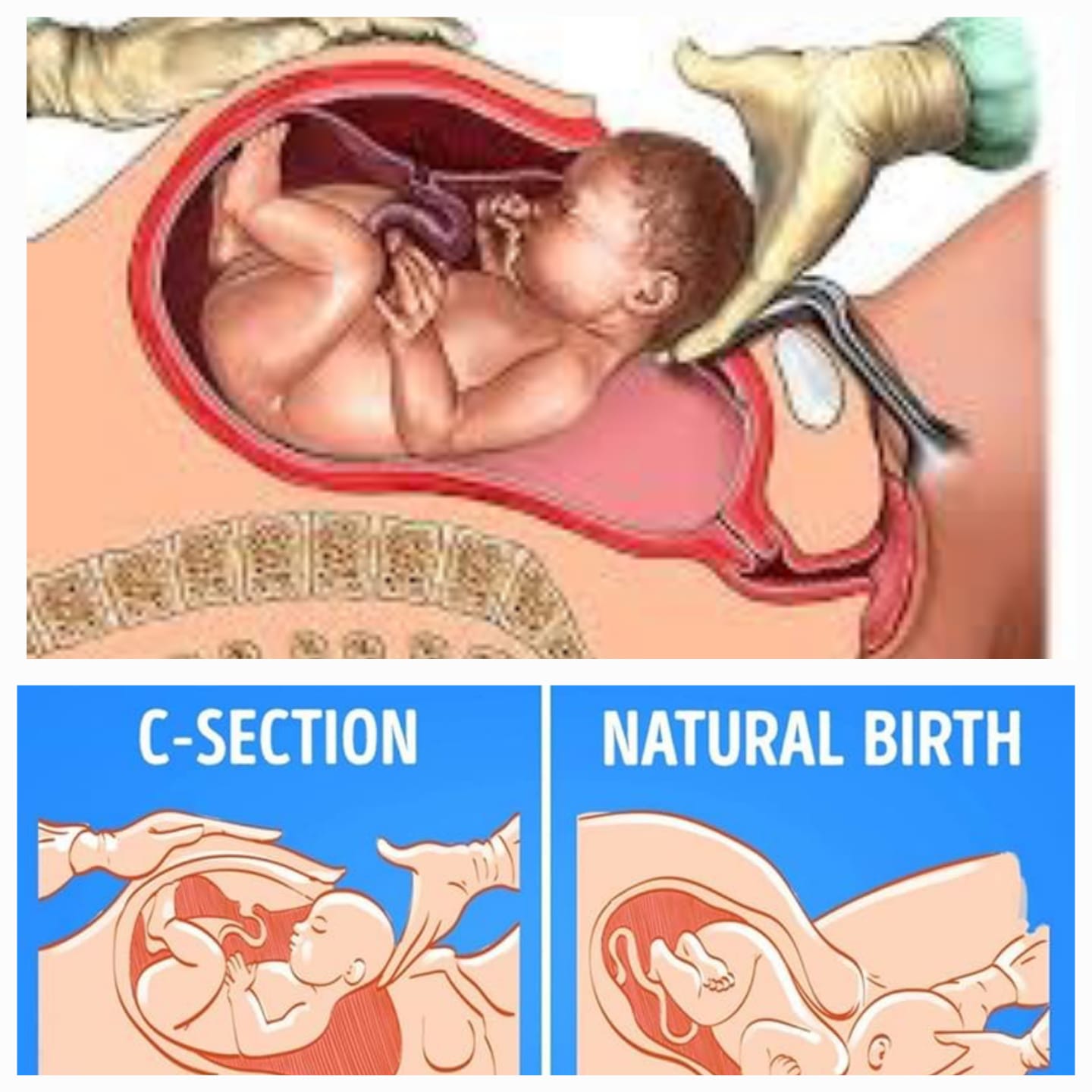
POST-NATAL CARE & GUIDANCE
During the postpartum period, mothers require physical and emotional recovery. Proper nutrition, hygiene, rest, and breastfeeding guidance are essential. Consulting doctors and experts for wound care, hormonal changes, mental health, and newborn care is crucial to ensure a smooth recovery and overall well-being.

FAMILY PLANNING PROCEDURES
Contraceptive counseling provides individuals with information and guidance on birth control methods, enabling them to make informed decisions.
Family planning procedures include surgical methods such as tubal ligation and vasectomy, which help in controlling reproduction. These procedures support planned pregnancies and empower individuals to effectively manage their reproductive health through surgical intervention.
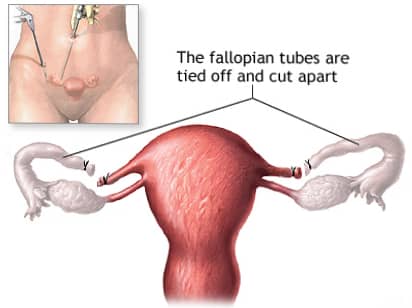
PCOD (POLYCYSTIC OVARIAN DISORDER)
PCOD is a hormonal disorder that affects women, typically between the reproductive ages of 15 to 44. It primarily occurs due to an imbalance in hormones, leading to an increased level of androgens (male hormones) in the female body. This hormonal imbalance causes cysts to form on the ovaries, leading to an enlargement of the ovaries and the accumulation of follicles around them, which can affect ovarian function. Irregular menstrual cycles are also a common symptom.
Symptoms of PCOD:
- Irregular menstrual cycles
- Unwanted hair growth on the face, chin, chest, and abdomen
- Increased acne and oily skin
- Thinning of scalp hair, leading to excessive hair loss
- Unexplained weight gain
- Hormonal changes causing headaches, fatigue, and sleep disturbances
- Difficulty in conceiving
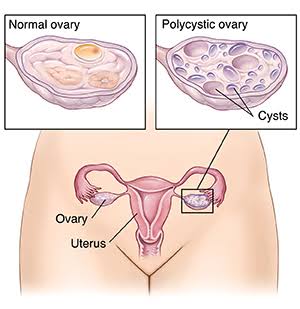
MTP CENTRE
The advantages of medical termination of pregnancy include the following:
- Non-invasive procedure until it fails
- Safety and effective method for early pregnancy
- Done with privacy under medical supervision
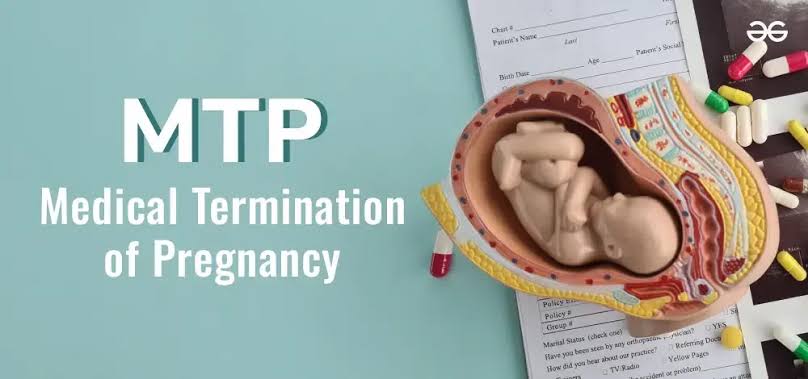
Gallery

